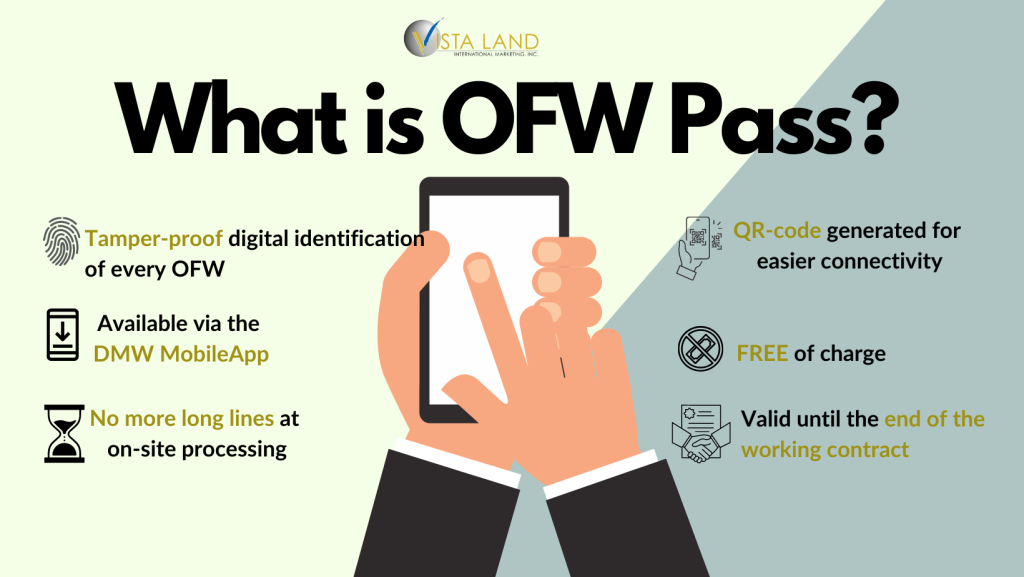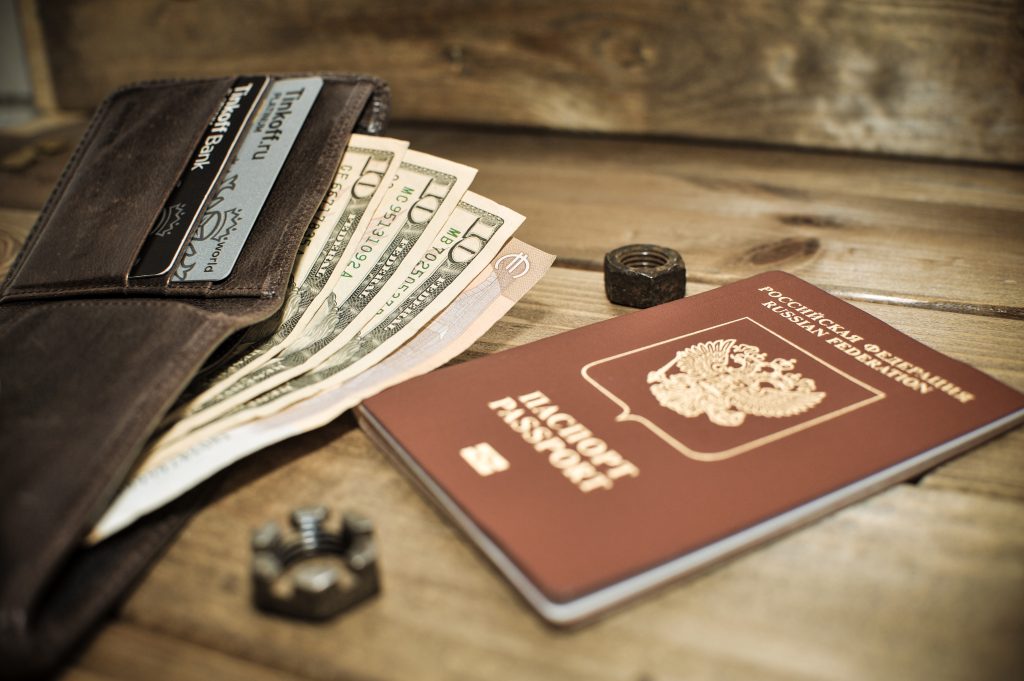Good news! Overseas Filipino Workers (OFWs) can now skip the long lines of waiting during onsite processing as the Department of Migrant Workers (DMW) launches the OFW Pass, the digital equivalent of the Overseas Employment Certificate (OEC). This is in line with the government’s campaign of streamlining government process through the integration of IT-based solutions. Soon, the DMW Mobile app will be integrated with the e-GOV app which will further provide convenience in accessing various government services.
Going back, the digital OFW pass can be downloaded from the DMW mobile application and serves as an alternative to OEC. As a review, OEC is one of the primary requirements for OFWs wishing to work abroad or go back to their foreign employers. Also known as exit clearance, the OEC is a proof that the OFW has underwent legal recruitment processes and their employment is registered in the Philippine Overseas Employment Administration (POEA). It is also presented to the Immigration Officers before exiting the country.
Today, we will dive deeper into OFW Pass and its benefits. This article will also serve as an OFW Pass registration guide for our OFWs.
What is OFW Pass?

The OFW Pass serves as the tamper-proof digital identification of every Overseas Filipino Worker. It is the more convenient alternative to the OEC. To further understand the purpose of the OFW Pass, let’s take a look at the differences of the two.
For starters, OFWs can now skip the long lines of waiting in getting their OECs as now they can process its acquisition through the comprehensive mobile platform, DMW mobile app, wherever they are, even in the comfort of their homes. OFWs don’t need to physically go to the processing site as they can easily generate the OFW Pass QR code through their mobile phones.
In addition, the traditional overseas employment certificate only has a 60-day validity and can be only used once. Whereas, the OFW pass remains valid until the end or expiration of the OFW’s working contract. Not only that, but the OFW Pass is also free of charge, unlike the OEC that costs PHP 100. While both serves as a proof of the employment legitimacy of the OFW, the OFW Pass is more convenient and can be easily integrated into other government apps.
The Transition Period
OFW who aren’t tech savvy do not need to worry about this new digital process, as the DMW will still honor OECs two months after the launch of the OFW Pass.
This in return gives our Kababayans the enough time to explore and familiarize themselves with the new digital platform. Aside from that, DMW will also deploy Filcom volunteers who are more than willing to extend help and assistance to our dear OFWs in navigating through the app. To further the support to our OFWs, a 24/7 Contact Center will soon be established.
How to Get a Verified OFW Pass from the OFW App?
Getting your OFW Pass is easy and hassle-free! All you need is your mobile phone, a stable internet connection and you will get your OFW Pass in just a few clicks! Check out this step by step guide!
Step 1
Log in to your DMW mobile app. You will be redirected to the passport verification section. You can download and install the app first if you haven’t yet.
Step 2
A prompt will show asking for permission to use your phone’s camera. Allow access then Tap continue.
Step 3
Grab your passport ID and get ready for scanning. Tap continue. Grid lines will appear on your screen that will serve as your guide to properly position your passport during scanning. Check the clarity of the photo and the readability of the details indicated. Tap continue.
Step 4
Wait for the app to process your ID.
Step 5
After sucessfully scanning your ID, you will be requested to take a selfie photo. Position your face in the designated area and avoid using flash. Take your selfie.
Step 6
Wait for the verification process to finish then tap continue. Congratulations! You can now use the OFW Pass! On the screen, you will see your verified OFW Pass, along with your digital identity and details.
Please be reminded that the DMW may take up to 2-3 days to process the information that you sent. You will receive a notification once your application has been approved.
Who can Avail the OFW Pass?

Phil Star states that “First-time OFWs, migrant workers returning to the Philippines temporarily but will be returning to the same employer, and OFWs who have transferred to a different employer or whose contracts need to be registered and verified by the Office of the Labor Attaché can avail OFW Pass.”
Is the OFW Pass the same as OEC?
The OFW pass is ther alternative, digital version of the OEC. In essence, they share the same purposes but differ greatly in acquisition and format.
Can I still use my OEC?
The DMW will have a grace period of two months so that OFWs can familiarize themselves with the new DMW mobile app and the acquisition of the OFW Pass. The OFW Pass won’t also invalidate the purpose of Overseas Employment Certificates. But soon as the transition period is over, the digital OFW pass may soon phase out the OEC.
It is important to stay updated with the latest news and announcement from the DMW.
How Can I Know the Validity of my OFW Pass?
You can check the validity of your OFW Pass in the DMW mobile app.
Final Takeaway
The OFW Pass is just one of the efforts of the Philippine government to streamline the government processes for our OFWs and Filipino migrant workers. OFW are deemed to be the modern-day heroes of our society: contributing largely to help our economy stay afloat. It is commendable that the government is taking a giant leap in order to improve the services and facilities in the country for our OFWs.
This also means that our migrant workers can spend more time with their family (whether they are here or through video calls) as they won’t have to spend the day going from one government agency to another and falling into long queues in between. They can also save a lot of their hard-earned money especially when it comes to transporation expenses. Most of it all, they can now avoid falling victim to scammers giving out fraudulent copies of documents like the OEC.



